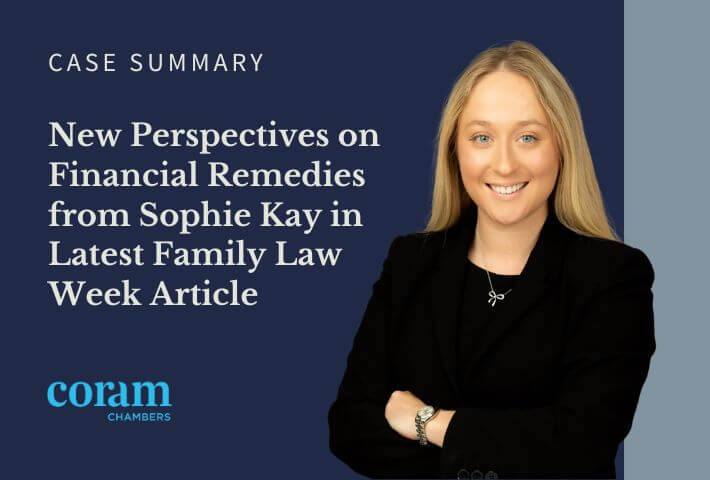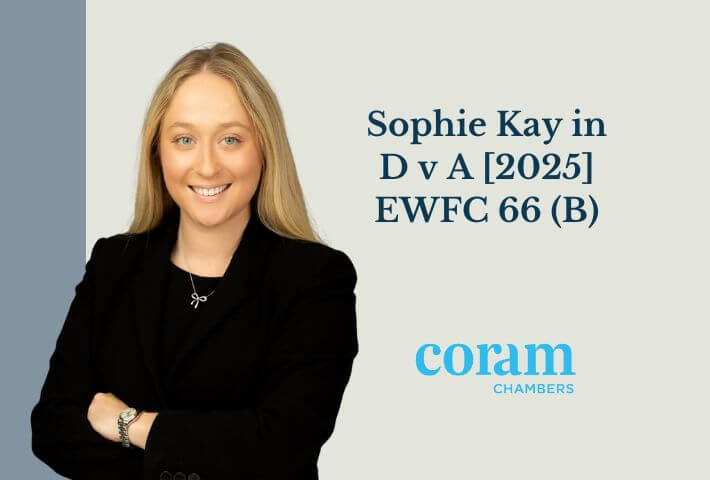
Coram Chambers is pleased to announce that barrister Sophie Kay has had a case summary published in Family Law Week, shedding light on the intricate balance between post-nuptial agreements and the courts’ duty to ensure fairness in financial remedies. The case in question, HW v WB (Financial Remedies; Treatment of Post-Nuptial Agreement) [2024] EWFC 328 (B), serves as a pertinent reminder of the evolving legal landscape around financial remedies.
Case Overview
Reported on 5th July 2024, this case revolved around a contested final hearing regarding the Husband’s application for financial remedies following a nine-year marriage, which produced one child. While the Husband maintained that the post-nuptial agreement (PNA) signed shortly after their marriage in 2013 was binding, the Wife contested its fairness, particularly in light of changed circumstances since its inception.
District Judge Phillips presided over the hearing, during which the Wife appeared as a litigant in person after being legally represented throughout most proceedings. The Court was tasked with determining whether the PNA was binding and, if so, whether it was fair to hold the parties to its terms given the substantial shifts in their financial dynamics and the birth of a child.
The Court’s Findings
Despite recognising the validity of the PNA, the judge concluded that the agreement, while binding, did not adequately address the Wife’s needs as the primary carer of their child. The court noted that the PNA’s provisions failed to account for the changed family circumstances and the financial imbalance that had developed over the course of the marriage.
As the Husband had benefitted from the Wife’s decision to forego employment and care for the children, the court found it unfair to uphold an agreement that did not incorporate essential maintenance provisions. The decision to award the Wife a total of £489,000, which included capital for housing, educational purposes, and a four-year capitalised maintenance provision, reflected the court’s commitment to ensuring a fair outcome.
Implications for Legal Practitioners
Sophie’s article critically examines the court’s reasoning, providing practitioners with essential insights into how PNAs are interpreted and the significant legal principles that guide financial remedy cases. The importance of clear, fair drafting of such agreements becomes evidently crucial, especially when future events like the birth of children can dramatically alter the financial landscape.
The case highlights the judiciary’s flexible approach in balancing the enforcement of agreements with the need for equitable outcomes, emphasising that legal practitioners should advise clients to keep their agreements under review. The missed opportunity for a review in HW v WB serves as a cautionary tale that underscores the necessity of proactively ensuring that financial agreements remain relevant and fair.
Conclusion
Sophie Kay’s in-depth analysis not only contributes to the ongoing discourse surrounding family law, but further underscores an important point for legal professionals: the significance of ensuring that all pre-nuptial and post-nuptial agreements are equipped to handle future uncertainties.
For the full judgment of HW v WB, please see below or click here.


